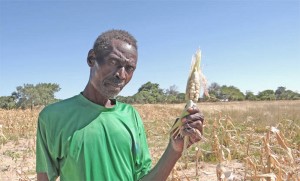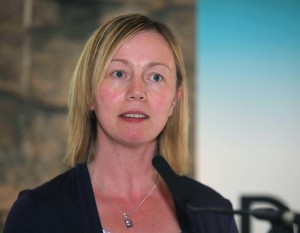
By Susan Gately - 21 February, 2015
 Individuals and communities have a key role to play in promoting climate justice according to Dr Lorna Gold Head of Policy and Advocacy at Trócaire.
Individuals and communities have a key role to play in promoting climate justice according to Dr Lorna Gold Head of Policy and Advocacy at Trócaire.
In an interview following a seminar in Dublin on climate justice and policy coherence, Dr Gold said people had to allow themselves to become aware of an uncomfortable truth.
“The truth is this: the world’s carbon budget (the safe level of CO2 in the atmosphere) is finite. At current rates that global budget will be used up by 2035 – just 30 years away,” she told CatholicIreland.
“Each of us uses up carbon every time we burn fossil fuels. A person in Ireland uses 88 times the amount of C02 as someone in Ethiopia. The more we continue to use, the less they will have – and therefore the less space to increase their level of development.”
Facing this truth, is really hard, said Dr Gold.
“I know because I have had to face it myself. Our lives depend on fossil fuels so much. It is not like you can just press the STOP button. Every time I get in the car to drive my children to school, I am affecting climate change that has impacts on people living on vulnerable coastlines far away and on future generations.”
Describing this truth as a “bitter pill to swallow”, Dr Gold said awareness was the first step for the individual.

Dr Lorna Gold, Trócaire
“Once you become aware and start to accept this new reality, you realise there are lots of things you can do – change your lifestyle to become more eco-friendly, think about how you consume and invest (is my pension funding oil companies?), build resilient local communities, campaign for change.”
She pointed to the ‘action’ dimension of Trócaire’s Lenten Campaign which focuses this year on Climate Justice as a means of moving from “feeling powerless to empowered”. (See www.trocaire.org/lent).
In terms of addressing climate change, 2015 is an important year.
In Ireland, the Climate Action bill is currently going through the Oireachtas.
Internationally, negotiations are ongoing towards a legally binding agreement on climate change in Paris in December 2015. This global agreement is to replace the Kyoto Protocol which expires in 2020.
Questioned about the Climate Action bill, Dr Gold said on the positive side it was good to have it and Ireland was one of “only a handful of countries” to bring in national climate legislation.
The lack of a national framework since 2012 to guide policy, had created a vacuum, she said, where “different policies tend to be in contradiction with each other and emissions have started to rise again in two of the largest emitting sectors – agriculture and transport.”
On the down side, the bill lacked teeth, and risked being an “opportunity lost” in that it set no national targets, did not provide a definition of ‘low carbon’, the oversight committee proposed was not independent, and there was no reference to climate justice.
“This is despite these amendments being recommended in a report produced by the Joint Committee of the Environment following the public consultation.”
Dr Gold said the climate action bill needed to be strengthened, in line with the recommendations that the Environment Committee set out last year.
“This will provide a clear framework for national action over the coming years and demonstrate we take the issue seriously. There is a lot to be gained by taking climate change seriously. A lot of new jobs could also be created,” she said.